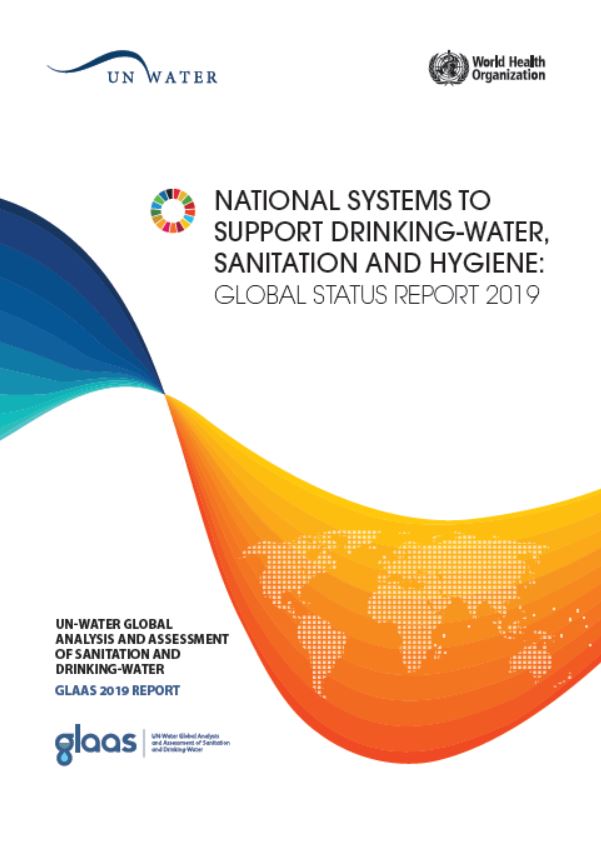National Systems to Support Drinking-Water Sanitation and Hygiene: Global Status Report 2019
 |
UN-Water GLAAS 2019: Des systèmes nationaux pour soutenir l'eau potable, l'assainissement et l'hygiène - Rapport de situation mondial 2019
Global analysis and assessment of sanitation and drinking-water (GLAAS) 2019 report
rapport coll. GLAAS n° 2019 Sep 2019 ; 144 pages
Ed. ONU-Eau - Genève WHO - Genève ; Isbn: 978-92-4-151629-7
Téléchargeable sous format: PdF
Téléchargeable chez l'éditeur
Site internet: https://www.who.int/water_sanitation_health/publications/glaas-report-2019/en/
Résumé:
Un grand nombre des 115 pays et territoires étudiés dans le cadre de l'enquête GLAAS (Global Analysis and Assessment of Sanitation and Drinking-Water) 2018/2019 de l'ONU-Eau prennent des mesures pour atteindre l'ODD 6. Environ la moitié d'entre eux se sont fixé des objectifs qui visent un WASH universel. couverture d'ici 2030, et il existe de nombreux exemples de gouvernements ciblant spécifiquement la défécation à l'air libre, ce qui aura un impact dramatique sur la santé publique et environnementale.
Au niveau international, GLAAS a interrogé 29 agences de soutien externes et a constaté qu'elles accordaient la priorité au renforcement des systèmes WASH.
WASH est un fondement de la santé publique et un catalyseur pour de nombreux domaines de développement. L'ambition de l'ODD 6 est élevée, mais chaque pas vers de meilleurs services WASH pour plus de personnes est un pas vers l'éradication de l'extrême pauvreté et l'amélioration de la santé et du bien-être pour tous. Abstract:
There is widespread recognition that sustainable and effective WASH service delivery is not only determined by the state of infrastructure, but also by complex institutional, governance and financial management systems. While a “system” may be interpreted or defined in different ways, core elements examined by the UN-Water Global Analysis and Assessment of Sanitation and Drinking-Water (GLAAS) initiative include the extent to which countries develop and implement national policies and plans for WASH, conduct regular monitoring, regulate and take corrective action as needed, and coordinate these parallel processes with sufficient financial resources and support from strong national institutions.
GLAAS findings on the status of WASH systems are varied. Most countries have requisite components in place, but many countries responded that they have yet to operationalize and fully implement measures to support and strengthen their national WASH systems. GLAAS findings highlight gaps and vulnerabilities in WASH systems and the need for further strengthening to assure sustainable and effective WASH service delivery in countries.
GLAAS data also allow an analysis of the extent to which, almost five years into the SDG period, countries have responded to the ambitious WASH targets established by the 2030 Agenda for Sustainable Development. With the understanding that achieving SDG 6 will require dramatic changes by countries, the GLAAS results show encouraging signs that countries have begun efforts to align with elements of the SDGs this early in the SDG era. However, the results of these efforts, and the vast majority of WASH progress in countries, are still to come
Mots clefs: |
assainissement (CI) (DT) (OP) (ope) , eau potable (CI) (DT) (OP) (ope) , financement (CI) (DT) (OP) (ope) |
Editeurs/Diffuseurs: |
|
ONU-Eau
-
UN-Water - Genève - Suisse |
WHO
-
World Health Organization - Genève - Suisse |
En cas de lien brisé, nous le mentionner à communication@pseau.org